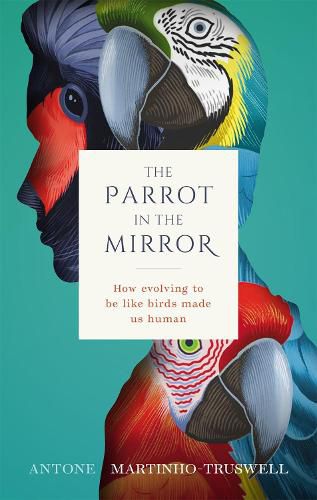Readings Newsletter
Become a Readings Member to make your shopping experience even easier.
Sign in or sign up for free!
You’re not far away from qualifying for FREE standard shipping within Australia
You’ve qualified for FREE standard shipping within Australia
The cart is loading…






How similar are your choices, behaviours, and lifestyle to those of a parrot?We humans are not like other mammals. We look like them, but we don’t act like them. In fact, many of our defining human traits: our longevity, intelligence, monogamy and childrearing, and learning and language, all deep parts of what it means to be human, are far more similar to birds than to our fellow mammals. These similarities originate not from shared ancestors but from parallel histories. Our evolutionary stories have pushed humans and birds to the same solutions. In this book, Antone Martinho-Truswell explores these similarities to argue that we can learn a great deal about ourselves by thinking of the human species as ‘the bird without feathers’. This is also a book about convergent evolution - evolution that drives very different species to very similar outcomes and behaviours. The traits we share with birds but not mammals are the result of similar, specific pressures that demanded similar solutions - and exploring these similarities can help us understand both why we evolved to be the way we are, and also how very unusual some of our behaviours are in the animal kingdom, Drawing on a rich array of examples across the natural world, Martinho-Truswell also demonstrates the ways in which parrots are our biological mirror image; an evolutionary parallel to ourselves. In contemplating what we share with the birds, and especially the parrots, we understand how close nature came to creating another lineage of radical intelligence on Earth, and we also come to better understand ourselves.
$9.00 standard shipping within Australia
FREE standard shipping within Australia for orders over $100.00
Express & International shipping calculated at checkout
Stock availability can be subject to change without notice. We recommend calling the shop or contacting our online team to check availability of low stock items. Please see our Shopping Online page for more details.
How similar are your choices, behaviours, and lifestyle to those of a parrot?We humans are not like other mammals. We look like them, but we don’t act like them. In fact, many of our defining human traits: our longevity, intelligence, monogamy and childrearing, and learning and language, all deep parts of what it means to be human, are far more similar to birds than to our fellow mammals. These similarities originate not from shared ancestors but from parallel histories. Our evolutionary stories have pushed humans and birds to the same solutions. In this book, Antone Martinho-Truswell explores these similarities to argue that we can learn a great deal about ourselves by thinking of the human species as ‘the bird without feathers’. This is also a book about convergent evolution - evolution that drives very different species to very similar outcomes and behaviours. The traits we share with birds but not mammals are the result of similar, specific pressures that demanded similar solutions - and exploring these similarities can help us understand both why we evolved to be the way we are, and also how very unusual some of our behaviours are in the animal kingdom, Drawing on a rich array of examples across the natural world, Martinho-Truswell also demonstrates the ways in which parrots are our biological mirror image; an evolutionary parallel to ourselves. In contemplating what we share with the birds, and especially the parrots, we understand how close nature came to creating another lineage of radical intelligence on Earth, and we also come to better understand ourselves.